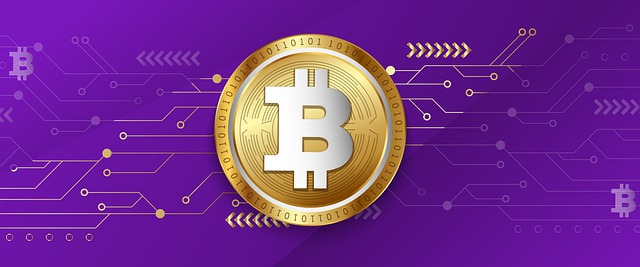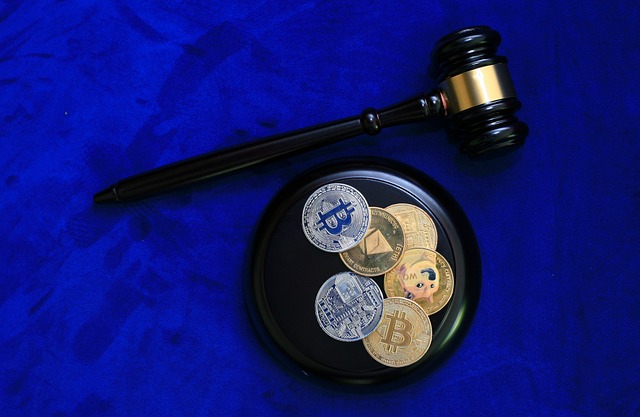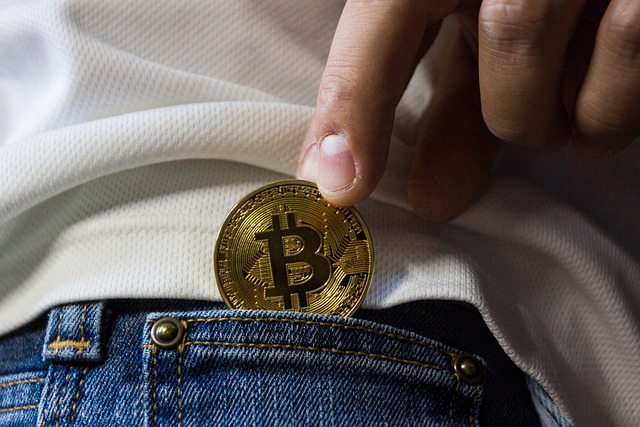Cryptocurrency wallets, secured through hardware or software, are essential for protecting digital assets. Hardware wallets offer offline security ideal for long-term holding, while software wallets vary in encryption and authentication. Understanding these differences is vital to navigate market volatility influenced by news. Robust practices like backup copies of recovery phrases, use of cold wallets, and secure storage prevent theft or loss during market fluctuations. Implementing 2FA, unique passwords, software updates, phishing awareness, and offline backups ensures crypto assets remain protected even against external threats. In a dynamic market where news impacts asset values, proactive security measures provide peace of mind and safeguard investments.
In the dynamic world of cryptocurrency, securing your digital assets is paramount. This comprehensive guide delves into the intricate details of cryptocurrency wallet security, exploring best practices that safeguard your investments. From understanding different wallet types and their unique security features to mastering cryptography’s role in protection, we equip you with essential knowledge. Learn about physical and digital wallet security measures, backup strategies, and proactive defense against evolving threats, ensuring peace of mind in the ever-changing crypto landscape.
- Understanding Cryptocurrency Wallets: Types and Their Unique Security Features
- The Role of Cryptography in Ensuring Wallet Safety
- Best Practices for Physical Wallet Security
- Digital Wallet Security Measures: Protecting Your Crypto Assets
- Backup and Recovery: Essential Strategies for Data Integrity
- Staying Ahead of Threats: Common Wallet Attacks and Prevention Tips
Understanding Cryptocurrency Wallets: Types and Their Unique Security Features

Cryptocurrency wallets are essential tools for secure storage and management of digital assets, mirroring the role traditional banks play in fiat currency. They come in various types, each with unique security features. Hardware wallets, for instance, offer robust protection through offline storage, making them ideal for long-term holding. Software wallets, on the other hand, range from mobile applications to desktop software, providing varying degrees of security based on factors like encryption and two-factor authentication.
The impact of news on crypto rates underscores the importance of choosing a wallet that aligns with your security needs. While hardware wallets are less affected by price volatility, they require additional setup and maintenance. Software options, though more flexible and accessible, demand careful consideration of their security protocols. Given the dynamic nature of the cryptocurrency market, understanding these distinctions is crucial for navigating both potential gains and risks in your digital asset journey.
The Role of Cryptography in Ensuring Wallet Safety

The role of cryptography is pivotal in ensuring cryptocurrency wallet safety, fortifying digital assets against unauthorized access and malicious activities. Advanced encryption algorithms protect private keys, which are essentially the passwords to your crypto holdings, keeping them secure from hackers and prying eyes. This cryptographic shield not only safeguards your funds but also maintains the integrity of transactions, ensuring they remain confidential and unverifiable by any external party.
In the dynamic landscape of cryptocurrency, where new threats emerge as rapidly as technological advancements, robust cryptography acts as a bulwark against the volatile impact of news on crypto rates. As market sentiment and media coverage can lead to rapid fluctuations, having a secure wallet with cryptographic backing ensures that your digital assets remain shielded from both financial volatility and potential security breaches.
Best Practices for Physical Wallet Security

To ensure the security of your physical cryptocurrency wallets, it’s essential to adopt robust practices that safeguard your digital assets from theft or loss. One best practice is keeping multiple copies of your recovery phrases in secure, offline locations. These phrases are like passwords for accessing your funds, so having backups ensures that even if one copy is compromised, you still have access. Additionally, consider using cold wallets, which are physical devices designed to store cryptocurrency offline, making them immune to online attacks and hacks.
Another crucial practice is discretion in how you store and transport your wallets. Avoid keeping large amounts of crypto in easily accessible places like your home or car. Instead, use locked safes or hidden compartments for high-value assets. When traveling with your wallet, ensure it’s secured within a secure bag or case. Remember, the impact of news events on crypto rates can be significant, but maintaining strong physical security measures protects your holdings from direct, immediate threats regardless of market fluctuations.
Digital Wallet Security Measures: Protecting Your Crypto Assets

The digital wallet, a secure holding space for your cryptocurrency, is only as strong as its security measures. To protect your valuable crypto assets, implement robust safety protocols. Enable two-factor authentication (2FA) to add an extra layer of defense, ensuring that even if someone gains access to your login credentials, they still can’t gain entry without the second factor. Use strong, unique passwords for each wallet and consider a password manager to keep track.
Regularly update your software to patch security vulnerabilities. Stay vigilant against phishing attempts aimed at stealing your private keys or wallet information. Back up your wallets offline, in multiple locations, to ensure that even if your digital copy is compromised, you have a secure recovery option. Remember, the impact of news and events on crypto rates can be significant, making secure storage even more critical to protect your investment value.
Backup and Recovery: Essential Strategies for Data Integrity

In the dynamic landscape of cryptocurrency, where volatile price fluctuations can be influenced by global news and events, ensuring the security and integrity of your digital assets is paramount. A robust backup and recovery strategy stands as a cornerstone in this pursuit, offering protection against unforeseen circumstances like hardware failures or malicious attacks. Regular backups are not merely an option but an essential practice to safeguard your crypto portfolio. By storing copies of your private keys and transaction histories in secure off-chain locations—be it cloud-based services or physical media—you create a safety net that can be swiftly deployed during times of crisis.
The impact of news on crypto rates underscores the need for proactive backup measures. High-profile events, regulatory changes, or even speculative headlines can trigger substantial price swings, affecting the value of your holdings. A well-executed recovery plan, built upon reliable backup systems, enables investors to regain control over their assets with minimal disruption. This strategy not only preserves the financial integrity of your crypto investments but also fosters a sense of peace of mind in an otherwise unpredictable market.
Staying Ahead of Threats: Common Wallet Attacks and Prevention Tips

The cryptocurrency wallet, a digital vault for your digital assets, is a prime target for cybercriminals due to the high value and decentralized nature of crypto. Staying ahead of threats is paramount in this fast-evolving landscape. Common attacks include phishing schemes that mimic legitimate platforms, malware designed to steal private keys, and social engineering tactics aimed at tricking users into revealing sensitive information. To prevent these, always verify the authenticity of sources; never share private keys or passwords unless absolutely necessary, and use multi-factor authentication (MFA) where available. Keeping software updated is crucial as developers frequently patch security vulnerabilities.
Moreover, employing a hardware wallet, which stores cryptographic keys in a secure physical device, enhances security significantly. Regularly backing up your crypto assets across multiple secure devices and using unique, complex passwords for each wallet further mitigates risks. Staying informed about the latest security practices within the community, including tracking the impact of news on crypto rates to anticipate potential threats, is essential for maintaining robust wallet security in this dynamic environment.
In the dynamic world of cryptocurrency, securing your digital assets is paramount. By understanding the diverse types of wallets and their security features, leveraging powerful cryptography, implementing robust physical security measures, and staying vigilant against common attacks, you can protect your crypto investments effectively. Remember, the impact of news on crypto rates underscores the importance of proactive wallet security – safeguarding your digital currency not only protects your financial well-being but also ensures peace of mind in today’s digital era.
